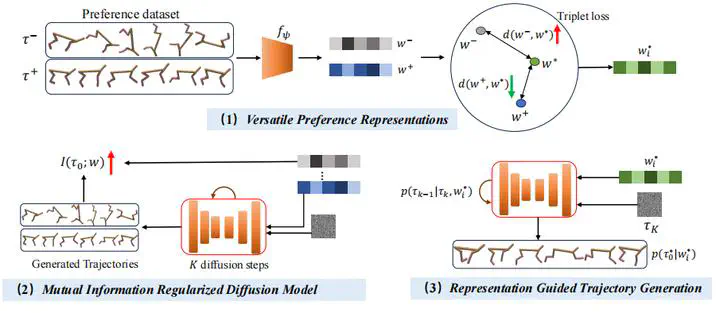 Image credit: Chenjia Bai
Image credit: Chenjia BaiAbstract
Sequential decision-making is desired to align with human intents and exhibit versatility across various tasks. Previous methods formulate it as a conditional generation process, utilizing return-conditioned diffusion models to directly model trajectory distributions. Nevertheless, the return-conditioned paradigm relies on pre-defined reward functions, facing challenges when applied in multi-task settings characterized by varying reward functions (versatility) and showing limited controllability concerning human preferences (alignment). In this work, we adopt multi-task preferences as a unified condition for both single- and multi-task decision-making, and propose preference representations aligned with preference labels. The learned representations are used to guide the conditional generation process of diffusion models, and we introduce an auxiliary objective to maximize the mutual information between representations and corresponding generated trajectories, improving alignment between trajectories and preferences. Extensive experiments in D4RL and Meta-World demonstrate that our method presents favorable performance in single- and multi-task scenarios, and exhibits superior alignment with preferences.